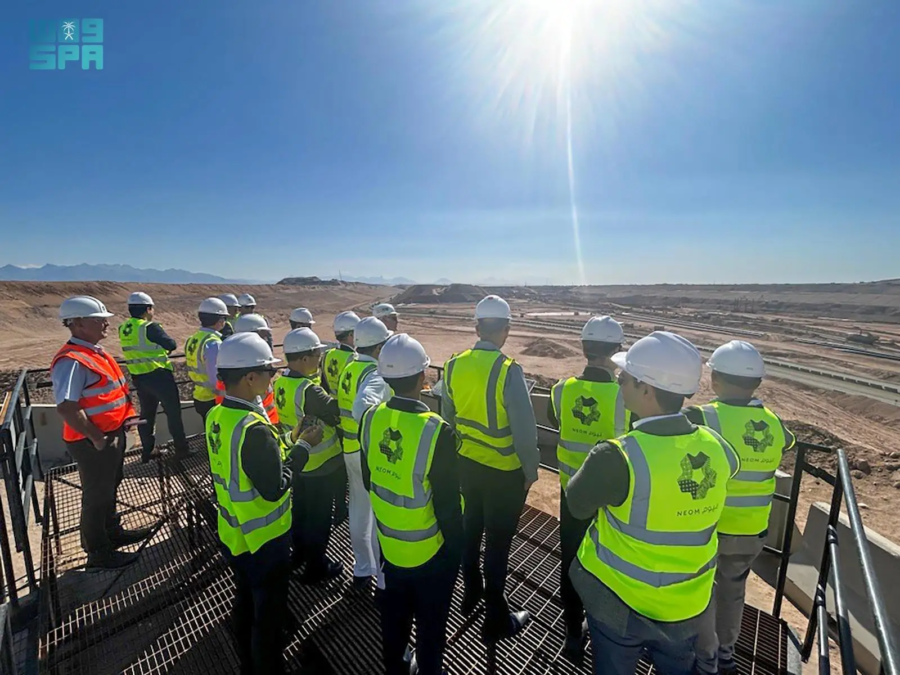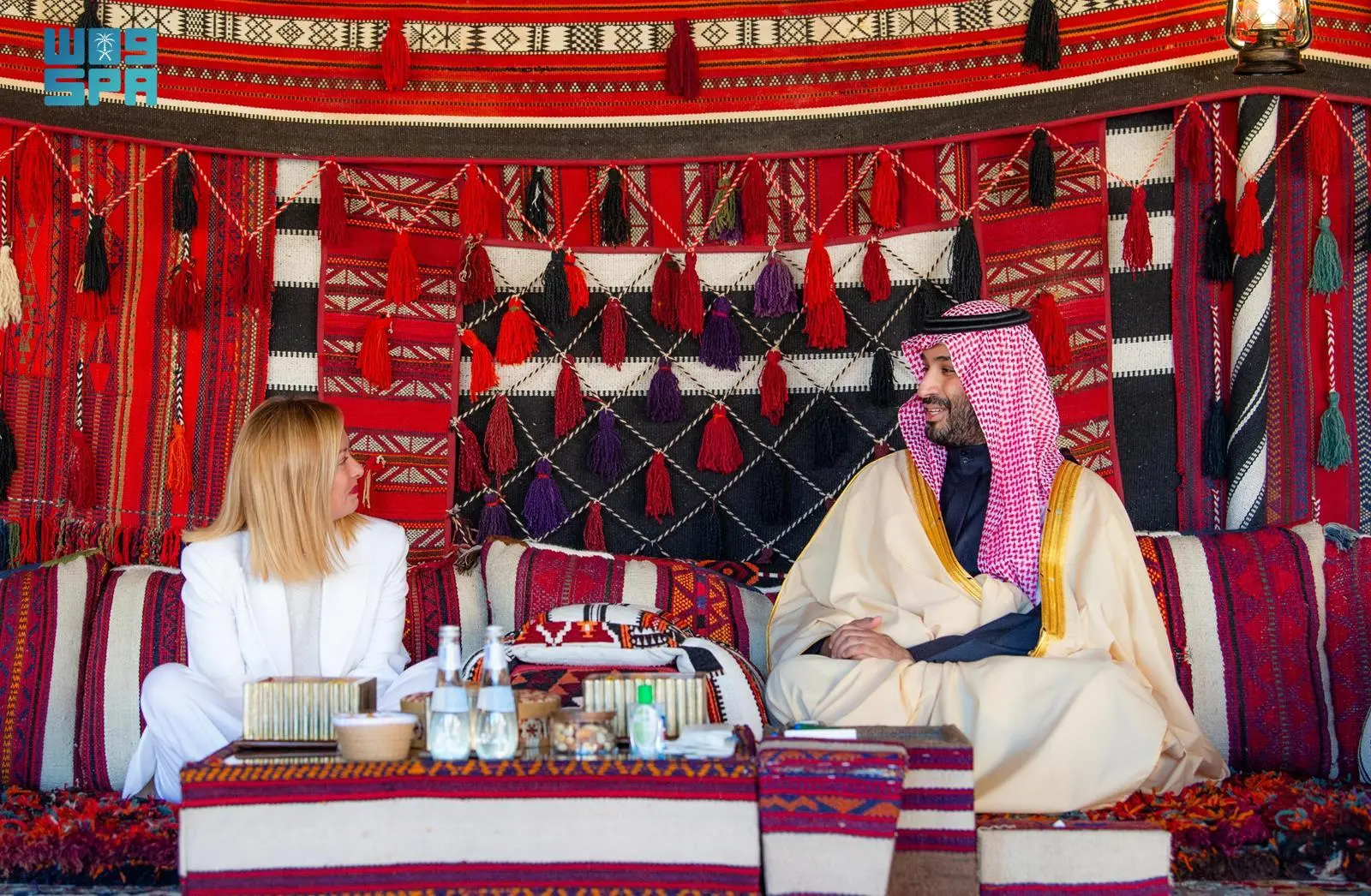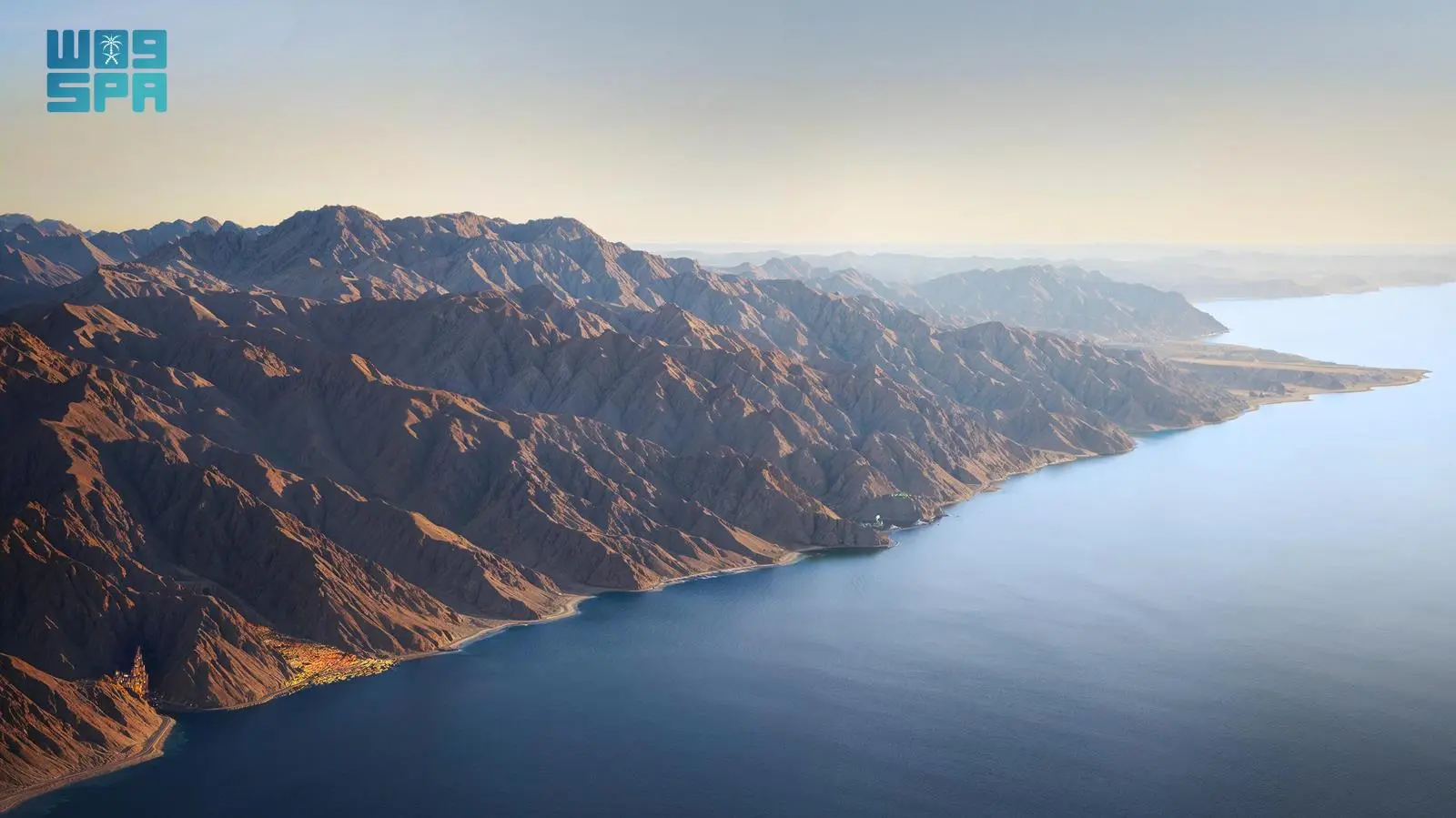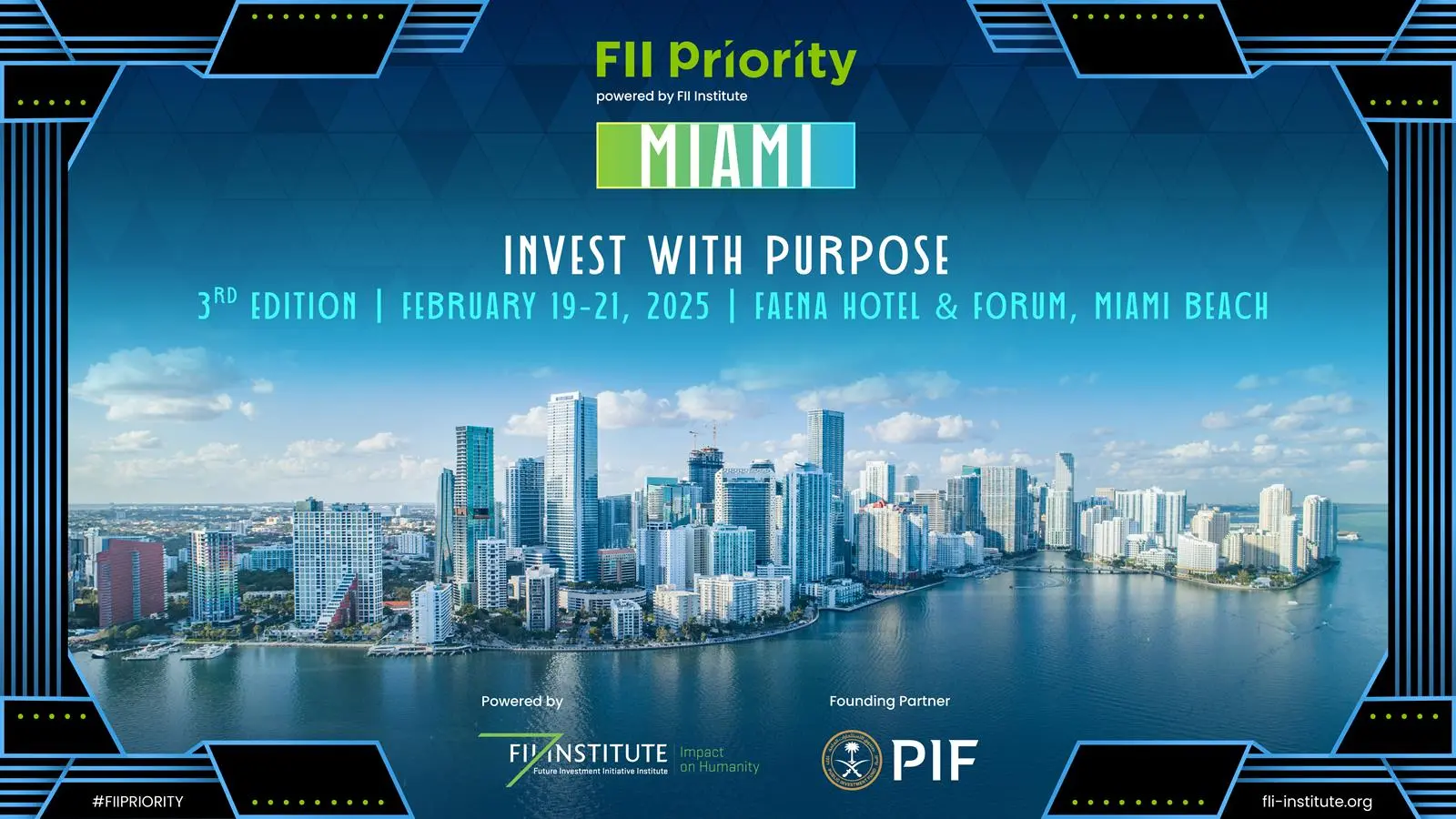
|
|||
QUOTED
|
|||
TOP STORYLed by Saudi, GCC contract awards reach new high in 2024
In its recently released GCC Projects Market Update, KAMCO Invest found that the total value of contracts awarded in the Gulf Cooperation Council (GCC) reached a new high of $273.2 billion in 2024. [more] |
|||
TOP STORYItaly’s PM Meloni meets Crown Prince in AlUla
Italian Prime Minister Giorgia Meloni’s visit included $10 billion in agreements spanning energy, defense, and cultural heritage as well as discussions on regional stability and international cooperation. [more] |
|||
TOP STORYNeom provides updates at recent Davos World Economic Forum
NEOM executives provided updates on four main projects that are part of the Neom project revealing that they are all underway, but that flagship linear city The Line will take around 100 years to complete and populate. |
|||
TOP STORYDream of the Desert, Middle East’s first 5-star luxury train
Saudi Arabia Railways and Italian hospitality company Arsenale have officially unveiled the final designs of the Dream of the Desert train, the first five-star luxury train in the Middle East. [more] |
|||
TOP STORYFII Institute to hold 3rd edition of PRIORITY Summit in Miami next month
The Future Investment Initiative (FII) Institute has announced the third edition of its flagship event, the FII PRIORITY Summit, under the theme “Invest with Purpose,” the summit will take place in Miami from February 19 to 21, 2025. [more] |
|||
Saudi Arabia’s Construction Boom: $71.5 Billion in Projects Awarded in 2024Via Ahmed Ghandour in leaders-mena.com: Saudi Arabia’s construction sector is experiencing a significant surge. The Kingdom awarded a staggering 314 public projects in 2024. These projects total approximately 267.8 billion Saudi riyals ($71.5 billion USD). This marks the highest annual project value since the 2020 Covid-19 pandemic. The Saudi Contractors Authority (SCA) released these impressive figures. The SCA represents a majority of construction firms within the Gulf Kingdom. April witnessed the highest project value, reaching SAR57.4 billion ($15.3 billion). January followed with projects worth SAR36.8 billion ($9.8 billion). In December, the government awarded 11 projects totaling about SAR10.5 billion ($2.8 billion). One project from December will complete in 2025, two in 2026, six in 2027, and two in 2030. |
|||
Saudi seeks foreign capital to build global, competitive industriesVia Ben Smith, Liz Hoffman, and Mohammed Sergie in semafor.com: Saudi Arabia’s main objective in attracting foreign investment is to unlock its labor force to develop goods and services that can compete globally, marking a shift for a kingdom known as a source of long-term capital for western companies.The kingdom has flipped the non-oil sector’s contribution to GDP to slightly over half the economy for the first time, up from 46% before the plan was announced in 2016. “The job is not done,” he said. “It’s on track. It’s gaining momentum.” Key to sustaining this progress is attracting foreign companies and capital. That track record so far has been mixed. Saudi Arabia aims to bring in $100 billion in foreign direct investment (FDI) annually by 2030, or 5.7% of GDP. FDI inflows for the first nine months of 2024 totaled $14.5 billion, just over halfway to the government’s $29 billion target for the year, according to the General Authority for Statistics. |
|||
What does Neymar’s departure mean for the Saudi league?in apnews.com: The Brazilian attacker was among the global stars who transferred to Saudi clubs in 2023 when Cristiano Ronaldo joined Al-Nassr and Karim Benzema left Real Madrid for Al-Ittihad. But unlike the latter two, Neymar was injured too often to make much of an impact in the desert kingdom after his 90 million euros ($94 million) transfer from Paris Saint-Germain. He played just seven games before Al-Hilal released him this week by mutual consent. Analysts say his exit is not likely to have a big impact on the Saudi league’s international standing as long as other big names remain. “Neymar’s departure does not damage the brand. If the other stars start leaving then it is different, but that does not look like it’s happening,” said Sasi Kumar, a former Singapore international and founder of Spain-based sports investment company 28 Ventures. “He went there, got injured and the timing was unfortunate. I am sure Hilal and other clubs will go and make more signings, as the ambitions are still there.” |
|||
Trump’s envoy meets Netanyahu, visits Gaza after Saudi tripVia Maayan Lubell in reuters.com: U.S. Middle East envoy Steve Witkoff visited Gaza on Wednesday, then met with Israeli Prime Minister Benjamin Netanyahu amid the Gaza ceasefire and a regional diplomatic push. Witkoff, whose visit to Gaza was confirmed by a White House official, is in the region to oversee the implementation of the Gaza ceasefire. U.S. President Donald Trump hopes to leverage that deal into a broader regional accord that would include Saudi Arabia and Israel formalising diplomatic ties. Witkoff visited Saudi Arabia on Tuesday. The U.S. envoy met with Netanyahu alone for more than two hours, an Israeli official said, before they were joined by other ministers. |
|||
Commentary: Historical GCC-Lebanon partnership should be restoredVia Abdel Aziz Aluwaisheg in arabnews.com: Several high-level Gulf Cooperation Council officials have visited Lebanon recently to show support for newly elected President Joseph Aoun and Nawaf Salam, his pick for prime minister. Last Thursday, Prince Faisal bin Farhan visited Beirut, becoming the first Saudi foreign minister to do so in some 15 years. Kuwaiti Foreign Minister Abdullah Al-Yahya and GCC Secretary-General Jasem Albudaiwi were in Beirut last Friday. They delivered similar messages to Lebanon’s new leadership. Kuwait holds the current rotating presidency of the GCC and has been keenly interested in restoring Lebanon’s close relations with the Gulf countries. Over the past two decades, Lebanon and the GCC countries became estranged as Hezbollah came to dominate Lebanon’s political, security and economic systems, including its foreign policy, which became aligned with Iran’s. It also dominated law enforcement and parts of the judiciary, frustrating investigations into its members and shielding them from accountability. |
|||
Saudi Arabia says GDP grew 1.3% in 2024, lifted by non oil sectorVia Rachna Uppal in reuters.com: Saudi Arabia’s economy returned to growth in 2024, with real gross domestic product increasing 1.3% compared to the previous year, preliminary government data released on Thursday showed, with non-oil sector activities lifting overall GDP. GDP growth surged 4.4% in the fourth quarter versus the same period a year earlier, estimates from the General Authority for Statistics showed, the highest quarterly growth rate in two years, with non-oil activity increasing 4.6%. Non-oil growth vastly outperformed overall GDP in 2024 as well, increasing 4.3% while oil activities declined 4.5% and government activities grew 2.6%. The Saudi economy contracted 0.8% in 2023 as oil production cuts and lower oil prices hit growth in the worlds biggest crude exporter. |
|||
Saudi Telecom Company signs $9bn deal to build telecom infrastructureVia Alkesh Sharma in thenationalnews.com: Saudi Telecom Company, the kingdoms biggest mobile operator, has signed a contract worth Saudi riyals 32.64 billion ($8.7 billion) with a government entity to build, operate and provide telecoms infrastructure services. STC, which offers digital products and services across the Middle East and North Africa region, did not disclose the name of the government entity. The agreement includes an 18-month preparation and execution phase, followed by a 15-year operational period for the project, STC said in a statement on Tadawul, where its shares are traded. STC shares rose more than 2.24 per cent on Tuesday after the announcement as this deal marks a significant step in enhancing the kingdoms telecom infrastructure. |
|||
White House envoy met senior Palestinian official in Saudi ArabiaVia Barak Ravid in axios.com: President Trump’s Middle East envoy Steve Witkoff met on Tuesday in Riyadh with a senior adviser to Palestinian president Mahmoud Abbas, according to two sources with knowledge of the meeting. This was the first meeting between a Trump administration official and a Palestinian official since Novembers election. The sources said the meeting was the result of several weeks of back-channel talks between Trump administration officials and Palestinian leadership. According to one source, Saudi Arabia helped broker the meeting, which took place in its capital. |
|||
Saudi’s fintech breaks recordsVia Arjun Vir Singh in linkedin.com: Despite a sharp 44% dip in total funding, Saudi startups pulled in $750 million this year. The dip comes down to a lack of mega deals (those over $100 million). These large funding rounds were behind much of the total capital in recent years, so the absence of mega deals in 2024 weighed heavily on the numbers. The number of deals hit a historic high—178 transactions, up 16% from last year. Early-stage funding led the way, with SEED funding surging 64% and Series A deals growing 30%. |
|||
Saudi, other OPEC+ ministers meet after Trump calls for lower oil priceVia Yousef Saba, Maha El Dahan and Alex Lawler in reuters.com: Saudi Arabia’s energy minister and several of his OPEC+ counterparts have held talks following U.S. President Donald Trumps call for lower oil prices and ahead of a meeting next week of OPEC+ oil-producing countries, according to official statements and sources. Trump last week called on Saudi Arabia and OPEC to lower oil prices. OPEC+ has yet to respond, but five OPEC+ delegates said a meeting of the groups top ministers on Feb. 3 is unlikely to adjust its current plan to start raising output from April. On Monday, Saudi Energy Minister Prince Abdulaziz bin Salman held talks with Iraqs Hayan Abdel-Ghani and Libyas Khalifa Abdulsadek in Riyadh, the Saudi Press Agency (SPA) reported. |
|||
Saudi Moves Closer To 6th-Gen Fighter Aircraft. Italian PM Meloni Ready To Welcome Riyadh Into GCAPVia Sakshi Tiwari in eurasiantimes.com: The GCAP, launched in 2022, is a collaborative initiative that seeks to design, manufacture, and deliver a next-generation crewed combat aircraft. The member states of the GCAP grouping seek to induct the first aircraft developed under this program by 2035. Japan’s Mitsubishi Heavy Industries, Italy’s Leonardo, and Britain’s BAE Systems are leading the project as system integrators. On the question of whether the grouping will welcome the entry of Saudi Arabia, Meloni said, “We are in favor of the Saudis entering, but clearly this… will not be immediate,” emphasizing that the details of the GCAP still need to be worked out between the three founding nations. The Italian Prime Minister further added that opening up the multibillion-euro scheme to a fourth country will take time, without giving a tentative deadline. |
|||
Commentary: The Elusive Saudi-Israeli Normalization Deal – Why an Agreement is Likely to Fall Short of ExpectationsVia Robert Mogielnicki in thecairoreview.com: The primary actors involved in a potential Saudi-Israeli normalization have strong incentives to portray a deal as a paradigm-shifting event with tremendous, transformative potential for the broader region. This normalization agreement is often described as an all-or-nothing opportunity that will emerge triumphantly within a game-changing grand bargain or else collapse spectacularly. There is good reason to consider another scenario more closely resembling the status quo: a Saudi-Israeli normalization that is considerably less encompassing and transformative than envisioned. Yet many foreign policy priorities of both Saudi Arabia and Israel now appear increasingly disconnected from normalization. The Saudi crown prince—and de facto ruler of the country—craves global recognition. Mohammed bin Salman wants to represent Saudi Arabia at G20 summits, court tech titans and financiers from the U.S. and Europe, and deepen relations with BRICS countries. As far as the Middle East region is concerned, Saudi officials have pursued a policy of de-escalation, which include reestablishing diplomatic relations with Iran and reducing economic pressure on the Houthis. |
|||
Saudi Arabia raises local workforce quotas across key sectorsVia Nour El-Shaeri in arabnews.com: Saudi professionals in dentistry, pharmacy, accounting, and technical engineering will soon see expanded job opportunities as the Kingdom rolls out new Saudization targets under its Vision 2030 plan. The HRSD, in collaboration with health, commerce, and housing authorities, is now focused on localizing 269 professions. The initiative builds on earlier measures, such as increasing Saudization rates in radiology to 65 percent, medical laboratories to 70 percent, and physiotherapy and therapeutic nutrition to 80 percent last October. Effective July 27, community pharmacies and medical complexes will be required to achieve a 35 percent Saudization rate, hospitals 65 percent, and other pharmacy-related businesses 55 percent, according to a Ministry of Human Resources and Social Development announcement. These rules will apply to companies employing five or more pharmacy professionals. |
|||
Saudi Arabia must punch its weight on global stage: ministerin france24.com: We are a key player in the world, the world economy, and we need to punch at our weight, Finance Minister Mohammed al-Jadaan said on the sidelines of the annual World Economic Forum in Davos. We need to make sure that emerging economies and low income countries voice is heard, al-Jadaan said. This is why we are really protecting, in every possible way, their interests in these multilateral institutions, he said, stressing that emerging economies were becoming actually larger than advanced economies in total population and size of economy. Collectively, they need to be represented in the table. |
|||
Saudi Arabia opens up holy cities to foreign property investorsVia Edmund Bower in agbi.com: Saudi Arabia’s Capital Markets Authority (CMA) has announced that foreigners will be allowed to invest in companies that own real estate in the holy cities of Mecca and Medina. The CMA said the decision would “stimulate investment” and “enhance the attractiveness and efficiency of the capital market”. It added that the reform would help the economy by “attracting foreign capital and providing the necessary liquidity for current and future projects” in Mecca and Medina. The change in the law makes it easier for non-Saudis to invest in the real estate market of the two holy cities. At present they are forbidden by law from buying property in the holy cities, although it is possible to lease property for a maximum of 99 years. |
|||